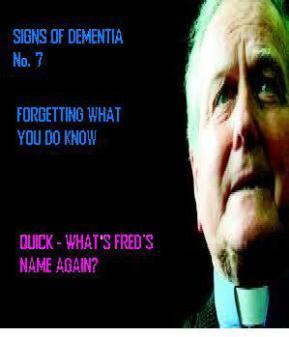Nsw Enquiry Rolls on OR: the Money or the COPS
Lewisblayse.net
The interesting evidence today at the NSW government enquiry into alleged cover-ups of child sexual abuse by members of the clergy in the Catholic Church’s Newcastle-Maitland diocese was given by Helen Keevers. She was head of the diocese’s child protection unit set up after the conviction of local paedophile priest Fr. Fletcher (see previous posting) in 2005.
Ms. Keevers was a church employee, as a social worker and non-Catholic, from 1978 to 2009. In her evidence, she was largely very supportive of the integrity of her former boss, Bishop Michael Malone (see previous posting). However, she did refer to Malone’s “inappropriate decision-making during the Fr. Fletcher matter.”
She was given access to confidential internal files on priests. She confirmed a previous witness’ claim that they were called the “bad priest files” (see yesterday’s posting), but thought this was “not particularly respectful.” When she began “digging in the files” she found “much more information and further evidence” against other priests. She described the McAlinden files as being 3-4 inches thick.
Ms. Keevers noted that: “On two occasions, I was denied access” to documents concerning the Central Clergy Fund. This file could have been interesting, and should be looked at again under the Royal Commission.
Besides the Fletcher and McAlinden cases, which are the subject of the enquiry, she found evidence against a further seven priests in the diocese. Four of those priests have since been convicted. The priests were not named at the enquiry because they were outside its terms of reference, but details are available on several web-sites, including that of Broken Rites (see previous posting).
Bishop Malone, according to Ms. Keevers, wanted “sound risk-management advice” after “mistakes” with the Fletcher and McAlinden matters. This is a term more likely to be heard from a politician or the CEO of a corporation caught out for bad business practice. Something of the attitude is given by her statement noting that, when she explained the legal requirements of sexual abuse legislation to priests, she was “treated as an outsider.”
The most significant part of Ms. Keevers’ evidence concerned the discredited “Towards Healing” protocol for dealing with child abuse claims by the Catholic Church (see previous posting), which had also come up at the recently-concluded Victorian Parliamentary enquiry (also see previous postings).
Here, she confirmed that victims could either go to the committee, or go to police, but they “could not do both.” The clause was not in the original 2000 document, but was added in 2003. It is to be noted that any financial compensation had to come from this committee process. Court action was very likely to fail because of the “Ellis defence” problem (again, see previous posting).
The problems associated with the narrow terms of reference of the enquiry, specifically limiting which priests could be mentioned, are highlighted by a statement from Ms. Keevers in a court case involving another Newcastle-Maitland priest, Fr. O’Hearn, which contains much information relevant to understanding just what was happening in the diocese.
Ms. Keevers, in her statement, noted that her child protection committee had been advised about a series of complaints, dating from the 1990s, alleging inappropriate behaviour by Father O’Hearn. When a committee member was asked to investigate Fr. O’Hearn, he declined on the basis that O’Hearn was a friend of his. She stated that members of the committee believed that this friend also discussed a private investigator’s report with Fr. O’Hearn and disclosed information to him.
While the NSW enquiry cannot look into Ms. Keevers’ involvement with priests other than McAlinden and Fletcher, the Royal Commission will have no such limitation. It is clear that her reports, etc. concerning the other seven priests her committee investigated should again be raised at the Royal Commission. Hopefully, someone will do this so that we can see what was really happening in the Newcastle-Maitland diocese.
Ms. Keevers’ successor, Sean Tynan, also gave evidence, but it was essentially irrelevant, and merely a confirmation of how wonderful his boss, Bishop Malone, is. Tynan said he found it hard from the start to resolve a conflict between caring for survivors and investigating new allegations, so he “administratively separated” these functions.
Finally, the church’s star witness, Canon lawyer of “Ellis defence” fame, Roger Austin, was a flop. As one reporter tweeted, it was a case of “Canon law 101”. Basically he only said that sometimes canon and civil law “simply don’t coincide.”
The enquiry is due to end tomorrow afternoon, with its report due by the end of September, when the report of the Victorian Parliamentary enquiry is also due. At the same time, the Royal Commission will begin public hearings. At present, it is taking evidence in private from victims.
|
.
Any original material on these pages is copyright © BishopAccountability.org 2004. Reproduce freely with attribution.
